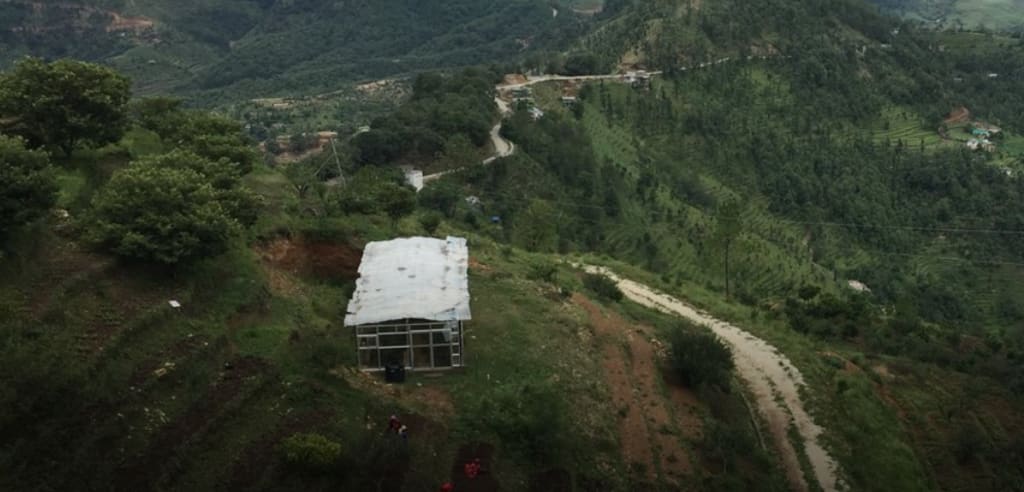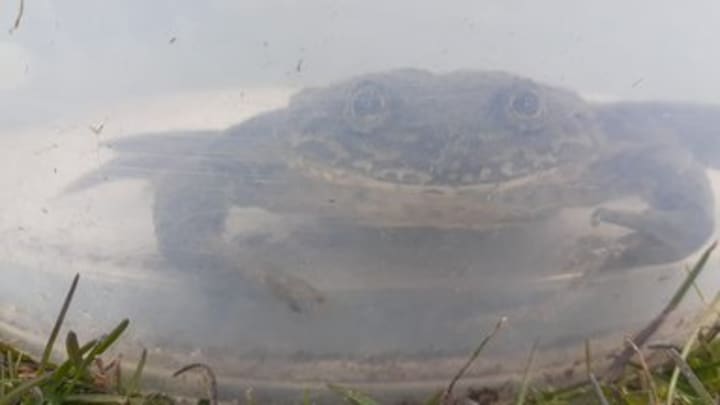Climate change efforts go virtual
As the impacts of climate change become ever more evident, the Peace Corps is finding new ways to support global communities as they adapt to economic, environmental, and social changes.

Here are five examples of how returned Peace Corps Volunteers (RPCVs) donate their time to support climate change efforts through Virtual Service projects:
1. Adaptive agricultural practices that sustainably increase productivity.
It’s no surprise that farmers are seeing the effects of climate change firsthand. After all, irregular precipitation patterns and increased pest populations can greatly impact production, which threatens farmer’s livelihoods. Organizations like Kingston-based Rural Agricultural Development Authority's (RADA) work with local Jamaican farmers to protect the country’s economic growth and agricultural stability.
“The farmers’ needs have changed significantly because of climate change; farmers struggle to contend with a changing climate. For example, they struggle to keep their farms productive amid dwindling rainfall," RADA’s Alisha Anderson said.
Alisha collaborated virtually with returned Peace Corps Response Volunteer Kaitlan Mahoney (Fiji 2015-2016) to create and co-facilitate training workshops that taught effective farm management skills. These workshops will enhance the day-to-day operations of local farms and prepare farmers for when unexpected, climate change-related factors arise.
2. Build household resilience by diversifying existing and new agriculture-related income-generating opportunities.
Farmers are also interested in expanding their crops. Creating a diverse agroecosystem can reduce the need for harmful fertilizers and pesticides. By participating in Virtual Service, Nepal’s Hom Bahadur Thapa Magar learned tips for successfully adding cabbage and cauliflower to his already impressive farm.
“I supported him by identifying and sourcing new fruit and nut varieties appropriate to his local conditions that could supplement the nutritional and economic needs of his community,” said Andrew Phillips, who served in Nepal from 2017 to 2018.
Hom-ji also collaborated with Alyssa Mashek, who served in Nepal in 2019 and 2020, to explore orchard management best practices, including methods to reduce fungal diseases through proper airflow. As lead farmer for his community in Nepal, Hom-ji will disseminate information gathered from these discussions to other local farmers.
3. Promote school and community activities that mitigate climate change, like school gardens.
You don’t have to be a farmer to make an agricultural difference. School gardens can help meet the world’s urgent need for increased food security. Teaching younger generations tangible, sustainable practices can mitigate some risks like food waste and transportation emissions.
Virtual Service Participants like Cindy Mosca work alongside schools to educate students on flora and cultivation practices.
“[The School Garden Curriculum] had a great lesson for marigolds and pollinators, but in Ethiopia, marigolds are invasive. I had to find a native plant to use in the pollinator lesson – it was an opportunity to learn something myself,” said Cindy, who served in Ethiopia from 1967 to 1969.
4. Protect endangered species and their environment.
The world’s changing conditions can result in vulnerable wildlife populations. The loss of any species may trigger disastrous consequences to ecosystems, other species, and humans.
Some Virtual Service Participants have donated their time to conservation organizations and national parks working to protect endangered species.

“I worked with an endemic aquatic frog called Telmatobius macrostomas, or the giant frog of Lake Chinchaycocha, and the Telmatobius brachydactulus [also known as] the Wancha of Lake Chinchaycocha," Tracy Stetzinger (Peru 2019-2020) said about her rewarding work with organizations in Junin and Pasco, Peru.
"I translated applications for the Rufford grant and the recent Save The Frogs! grant awarded to Grupo RANA. We got the government of Peru to recognize the frog as a 'Species of National Pride,' giving it special recognition and protection status.”
5. Protect health-related factors, such as clean air and safe drinking water.
Changing precipitation cycles, excess runoff, the use of fertilizers, and pollution influence our everyday access to clean water. Thankfully, there are organizations dedicated to promoting equitable access to safe water.
During her virtual engagement, Okxana Cordova, who served in Moldova from 2017 to 2019 collaborated with The National Agency for Public Health in Moldova to create print and digital materials to educate the public on water conservation and consumption.
“Moldova is at a crucial point in time with climate change and sociopolitical events," she said. "Given the rising costs of living, reducing water waste is not just ecologically important but also financially beneficial. Action now will ensure that current and future generations have clean, safe, and potable water."
The current climate crisis demands action from all of us. We can make small lifestyle changes as well as get involved with organizations actively protecting our planet’s natural resources.
About the Creator
Sabrina
Welcome to my site on Vocal.media Story ! Here, you`ll find a curated collection of my stories and thoughts
Enjoyed the story? Support the Creator.
Subscribe for free to receive all their stories in your feed. You could also pledge your support or give them a one-off tip, letting them know you appreciate their work.






Comments
There are no comments for this story
Be the first to respond and start the conversation.